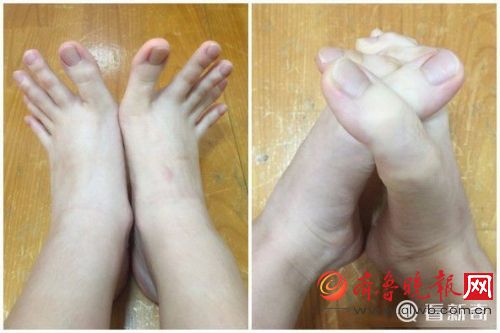

Northwest China's Xinjiang Uyghur Autonomous Region on Monday adopted a new anti-terrorism regulation based on China's Anti-Terrorism Law, giving detailed instructions on how to deal with terror activities, including keeping hard-line radicals away from other prisoners and re-assessing convicts' risk level before they can be released from prison.
The regulation, a legal interpretation of the Anti-Terrorism Law that was designed to better suit the situation in Xinjiang, was approved by the autonomous region's legislative body on Sunday and went into effect on Monday.
Xinjiang is the first provincial-level region in China to have released a regional interpretation of the Anti-Terrorism Law since it was implemented on January 1 this year. The region has been haunted by terror attacks in the past few years that took hundreds of lives.
Although a good part of the regulation falls in line with the Anti-Terrorism Law, the interpretation gives a new chapter on how to re-educate and manage terrorists, which was not included in the national law.
The regulation stipulates that prison authorities must re-assess the risk level of convicts of terror-related crimes six months before their release. The assessment reports will be submitted to local courts, which will decide, within a month, whether a convict requires further re-education upon leaving the prison.
Ringleaders of terror organizations, those who incited others to commit crimes while serving jail terms and those who resist education with violent tendencies must be confined in solitary and kept away from other prisoners.
Analysts said this specific clause is to prevent the spread of Islamic radicalism in prisons. Media reports revealed that many European prisons have in fact helped facilitate terrorism as hard-line radicals tend to use jail time to attract disciples and groom petty criminals for greater attacks, as in the case of the deadly Paris terror attacks that killed over 130 people in November 2015.
"The Anti-Terrorism Law is more of a general guideline. As the main battleground of China's anti-terrorism campaign, Xinjiang is in urgent need of a more detailed set of regulations that target the specific form of terrorism the region is facing," Li Wei, an expert on counter-terrorism at the Chinese Institutes of Contemporary International Relations, told the Global Times on Monday.
Wider definition of terrorism
Xinjiang's regulation has also provided a more detailed definition of terror activities than that in the national law.
It further stipulates that recruiting, training or transporting terror-related personnel will be regarded as carrying out terror activities, as will organizing or instigating others to illegally cross into another country to participate in terror activities or terror training.
Anyone who uses cellphones, the Internet, mobile storage devices or other media to disseminate terrorism or extremist thoughts will also be held accountable for terror crimes, the regulation says.
The Global Times reported in 2015 that police in Shanghai arrested 10 Turkish nationals suspected of supplying fake passports to ethnic Uyghurs, including one wanted terror suspect. Some confessed that they planned to use the fake passports to travel to Syria, Afghanistan and Pakistan.
The regulation requires the establishment of a three-tiered anti-terrorism mechanism comprised of agencies at provincial, prefecture and city levels. It calls for coordinated efforts from police, armed police, army, local militia, health, civil affairs, publicity and telecommunication departments.
Authorities also have the power to suspend ongoing rallies, demonstrations, performances or other activities that have mass participation to prevent terror activities. It also gives authorities the power to temporarily shut down schools, research facilities, enterprises and other organizations and stop the operation of plants or factories that involve explosive, radioactive or biochemical materials.
Clause 51 of the regulation states that those who have twisted the concept of "halal," which usually only applies to food, and expand the concept to all aspects of social life may be subjected to fines of less than 10,000 yuan ($1,538) or detention of five to 15 days.
 Who Will Fit The Chinese Roles In Game Of Thrones?
Who Will Fit The Chinese Roles In Game Of Thrones? China's Hubei Shennongjia added to World Heritage List
China's Hubei Shennongjia added to World Heritage List "Straddling bus" starts production in east China
"Straddling bus" starts production in east China Girl goes viral for finger-long toes
Girl goes viral for finger-long toes Five made-in-China hi-tech breakthroughs
Five made-in-China hi-tech breakthroughs HK-Zhuhai-Macao Bridge to open to traffic
HK-Zhuhai-Macao Bridge to open to traffic China opens its first combined transport service to Nepal
China opens its first combined transport service to Nepal Students take stylish bikini graduations photos
Students take stylish bikini graduations photos Charming dancing students pose for graduation photos
Charming dancing students pose for graduation photos Top 10 livable Chinese cities
Top 10 livable Chinese cities Top 20 hottest women in the world in 2014
Top 20 hottest women in the world in 2014 Top 10 hardest languages to learn
Top 10 hardest languages to learn China’s Top 10 Unique Bridges, Highways and Roads
China’s Top 10 Unique Bridges, Highways and Roads Chinese mainland box office trips on the way to becoming world's largest
Chinese mainland box office trips on the way to becoming world's largest Sports schools used to nurture China’s medalists, but are short of students now
Sports schools used to nurture China’s medalists, but are short of students now Shutdown of news portals not aimed at restraining freedom of speech: experts
Shutdown of news portals not aimed at restraining freedom of speech: experts Sex education varies across schools
Sex education varies across schoolsDay|Week